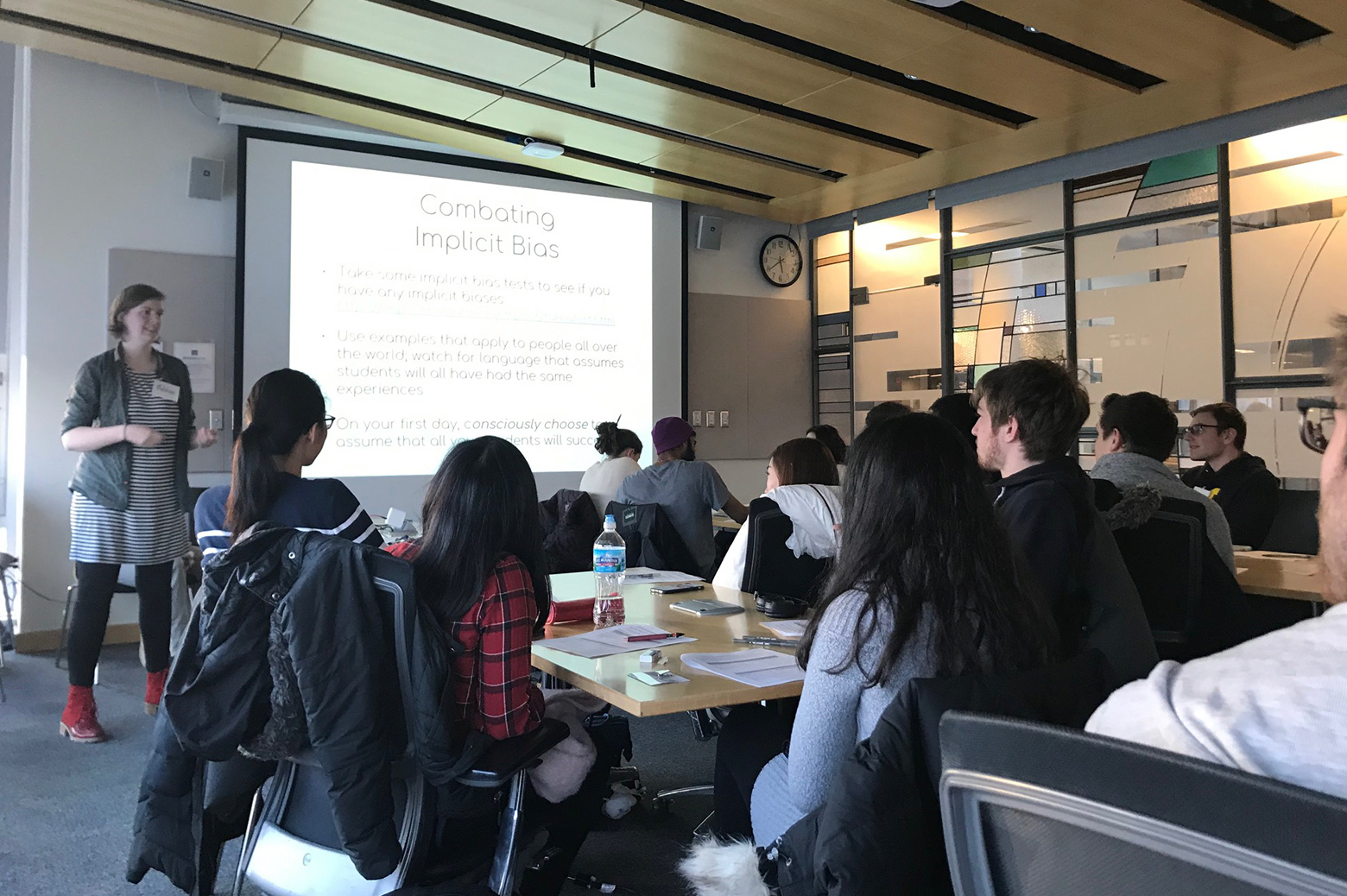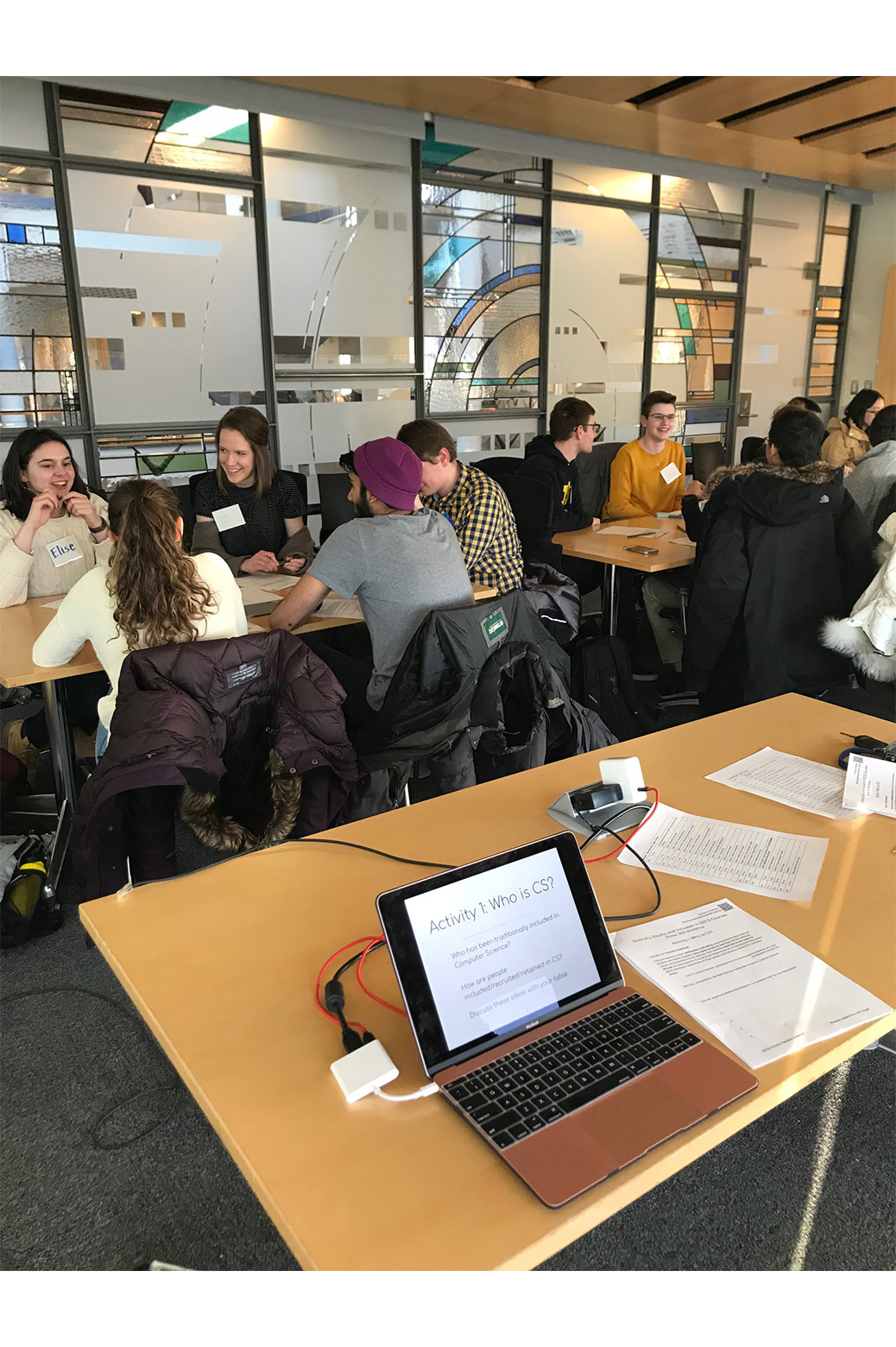Training student instructors for inclusive teaching in intro CSE courses
The initiative has tackled courses that make up the core curriculum for first- and second-year CS and CE majors.

 Enlarge
Enlarge
The CSE Division has undertaken a new initiative to support a better and more welcoming climate for all students in its introductory courses. The initiative provides specialized training on inclusive teaching to all Graduate Student Instructors (GSIs) and Instructional Assistants (IAs) who teach or provide other instructional support to those courses, emphasizing a number of factors that help instructors interact with students in an inclusive and equitable way.
The initiative, led by Arthur F. Thurnau Prof. Valeria Bertacco, Prof. Westley Weimer, and Dr. Amir Kamil as part of their effort within the CSE Diversity Committee, has tackled EECS183, Eng101, EECS203, EECS280 and EECS281: courses that make up the core curriculum for first- and second-year CS and CE majors. The faculty who lead these courses announced the opportunity to their student instructors and encouraged them to apply, resulting in participation from over 100 IAs and GSIs in a 90-minute workshop on inclusive teaching.
The workshop was offered seven times over a period of two weeks so that sessions had no more than 25 participants and could include small group discussions. Participants learned about implicit bias, stereotype threat, impostor syndrome, and several dos and don’ts to boost inclusivity in teaching intro-level courses on computing. The workshops were facilitated by a few graduate and undergraduate students who are passionate about diversity, equity, and inclusion: Kevin Angstadt, Madeline Endres, Ashley Le and Barrett Olson.

 Enlarge
Enlarge
The goals of the initiative are to identify barriers to success for all CS and CE students, and to develop new approaches and techniques to support their success in the department. As a field, CSE is faced with a number of pressing issues regarding inclusivity and diversity. According to recent statistics regarding the AP Computer Science A exam, the percentage of African-American students sitting for the test in 2018 was approximately 3.7%, while 13% of the general US population is Black. Likewise, while women comprise 57% of undergraduate degrees, only 21% of all Computer and Information Science undergraduate degrees go to women.
The workshops were designed to improve the climate that all students experience in these courses, emphasizing the dangers of implicit biases in instructors and students, educating the participants on stereotype threat and impostor syndrome, and debunking the myth of “essential differences” for students of underrepresented demographics and backgrounds.
The material for the workshop was developed with support from Computing CARES, a program led by Prof. Bertacco within CSE to support inclusion and positive climate in the classroom. Computing CARES is supported by grants from the U-M Third Century Initiative and the National Center for Women & Information Technology.
 MENU
MENU 
